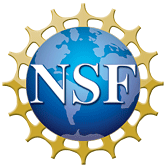Description
The Interdisciplinary Research and Education (IDRE) community is made up of individuals from diverse academic disciplines and institutional positions involved in IDRE. We engage with each other to improve the knowledge, ability, and capacity for enabling, leading, evaluating, and participating more effectively in IDRE. We welcome you to explore our community pages and attend our next event!.
Aspirations
KEYWORDS
- Collaboration
- IDR
- Interdisciplinary
- Team science
COMMUNITY MEMBERS
Advocate
Advocate
Advocate
Member
Member
- 1 of 10
- ››
Related Efforts
The UTEP Interdisciplinary Research (IDR) Symposium seeks to build on the momentum of campus IDR activities that have included connection-building events & increased interest in interdisciplinary research funds. The symposium typically includes an opening reception with poster presentations followed the next day with various sessions exploring the symposium’s theme. The 2014 theme was Rewarding and Recognizing Interdisciplinary Research. Contact idrutep@utep.edu to help plan the next symposium.
The Provost and the Office of Research and Sponsored Projects issue a Request for Proposals for interdisciplinary research enhancement on an annual and/or biannual basis. Awards to interdisciplinary teams are typically in the amount of $20,000 per team. Eligibility requirements, authorized use of funds, proposal structure, review processes and criteria, & requirements of awardees are described in the RFP. Term of the award is typically one year. To date, there have been four rounds of funding.
Related Centers
Related Communities
This poster identifies ten components that are recommended as the core content for collaboration plans. These range from providing a rationale for the proposed team composition to identifying what technologies are needed to support communication and workflow coordination, to planning for conflict prevention and management, to budgeting for the planned resources and activities. The poster also highlights key elements for investigators, funders, and reviewers to consider related to each component.
TOC:
1. QUALITIES AND SKILLS OF A HIGH FUNCTIONING DIRECTOR
2. MOLDING YOUR TEAM
3. CREATING A CULTURE OF COLLABORATION IN SOCIAL-ECOLOGICAL PROJECTS
4. ENABLING PARTICIPANT SUCCESS
5. SUPPORT FOR THE NEXT GENERATION OF RESEARCHERS
6. HIGH PERFORMANCE TEAMS
7. PROJECT DESIGN AND MANAGEMENT
8. PARTNERS AND STAKEHOLDER RELATIONSHIPS
9. INSTITUTIONAL RESOURCES AND SUPPORT
The growing scale of science has been accompanied by a shift toward collaborative research, referred to as "team science." Scientific research is increasingly conducted by small teams and larger groups rather than individual investigators, but the challenges of collaboration can slow these teams' progress in achieving their scientific goals. How does a team-based approach work, and how can universities and research institutions support teams?
Facilitating Interdisciplinary Research examines current interdisciplinary research efforts and recommends ways to stimulate and support such research.
This report identifies steps that researchers, teachers, students, institutions, funding organizations, and disciplinary societies can take to more effectively conduct, facilitate, and evaluate interdisciplinary research programs and projects.
- 1 of 4
- ››
DIALOG SOURCES
I3 Move Communities provide a way to share expertise, resources, and community information to the general public. There are numerous tools available, both open source and proprietary, for engaging in dialog and sharing information and knowledge within a closed group.
This community engages in dialog as follows:
None specified to date.


